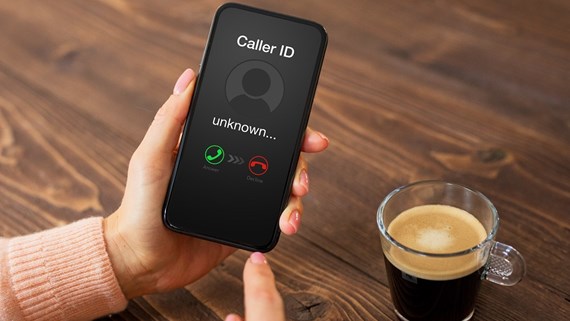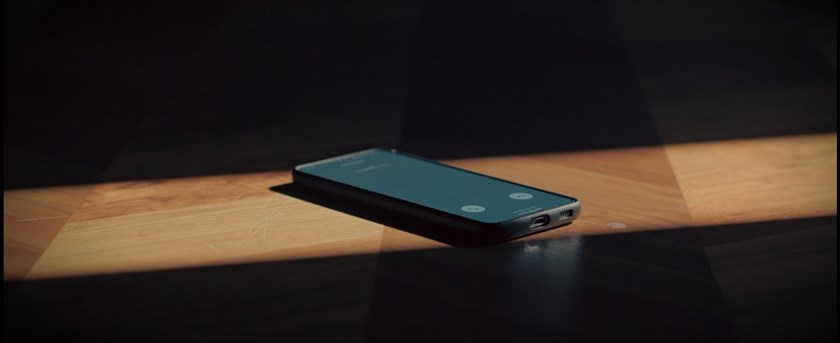The rise of online abuse in lockdown: how to deal with stalking
Insight

One of the many unfortunate side effects of life in lockdown has been an increase in online abuse, with police, cybersecurity firms and charities alike reporting an increase in online stalking and harassment, as well as a surge in cases of revenge porn. Lockdowns cause internet use and screen time to increase, while making it harder for victims to conceal their location or avoid social media. As a result, not only is online abuse more frequent, but its effects can be even more devastating.
In this series of three articles, we look at the steps you can take to: prevent or combat online harassment; prevent and combat online stalking; and remove or take action against revenge porn. Our last article discussed what to do if you are experiencing online harassment (click here to read the article). This week’s article, below, deals with online stalking.
How to combat online stalking
There has been an alarming spike in unlawful online monitoring since the first lockdown began in March 2020. According to cybersecurity company Avast, use of online spyware and stalking apps has increased by 51 per cent during lockdown. Meanwhile the UK’s National Stalking Advocacy Service, Paladin, reported a 50–70 per cent increase in initial requests for support in the three months after lockdown began.
The increase in online stalking could be for a number of reasons: it may be that perpetrators have resorted to online measures due to restrictions on movement. People living with their stalkers or abusers may also find it difficult to relocate due to lockdown restrictions, whilst being stuck at home means that their devices can more easily be accessed to upload spyware without their consent. The fact that most people will have an increased online presence during lockdown will also make it easier to track their whereabouts online. With a large percentage of the workforce now operating from home, many of us will be disclosing our home address to more people than ever before, as well as being increasingly reliant on online communications services. As our digital footprint increases, so does our vulnerability to covert monitoring.
What is online stalking?
Stalking is where an individual is fixated or obsessed with another person and engages in persistent, intrusive and unwanted behaviour towards them, which results in serious alarm or distress, or even a fear of violence. The term is not defined in UK law, but section 2A (3) of the Protection from Harassment Act 1997 lists examples of stalking, and further guidance on cyber stalking is provided by the CPS. Examples of online stalking include using the internet or hacking a person’s devices in order to spy on, monitor or communicate with them.
Online stalking often involves tracking someone’s location without their consent (using an app such as Friends Finder) or covertly monitoring their online activity, data and whereabouts by placing spyware on their devices, that allows the stalker to see what websites their victim has been visiting or even what they have been typing on their computer. It can also involve hacking into a person’s apps or social media accounts. For example, as many people now have CCTV cameras and doorbells that are connected to a mobile phone app, stalkers can hack into these to keep tabs on visitors to their victim’s home, or to monitor when they leave the house. Online stalkers also often use the internet to send repeated and unwanted messages or threats to victims. They may create fake profiles on social media accounts for this purpose or even accounts which impersonate their victims, in order to try and intercept their communications with others.
How can I prevent online stalking?
Online stalkers often rely on weaknesses in their victim’s online or device security, which allow them to infiltrate their devices, email or social media accounts, or to monitor their whereabouts online. This can be prevented by ensuring you have adequate security settings installed across your devices and online accounts, including enabling two-factor authentication. Installing antivirus and antimalware on all your devices is essential in order to ensure that spyware can be detected and removed. Without such protections in place, spyware can infiltrate your devices for months or even years before you notice it.
High profile individuals or those who are already at risk should consider using an encrypted password generator – these are apps which provide you with complex, encrypted passwords that can be frequently changed and which are securely stored in the app so you do not need to remember them. Using encrypted passwords will make it significantly more difficult for someone to hack into your accounts.
It is also vitally important to review your privacy settings across all of your social media and networking accounts and devices, so that you are not inadvertently disclosing information, such as your location, your contact details or your date of birth. You should also take care to ensure that you do not send or upload photographs which provide information about your location or activities. For example, if you have geotagging enabled on your mobile phone, you might be disclosing your location to anyone you send photographs to. This is particularly risky if you are exchanging photographs with someone you met online.
Keeping your personal networking accounts private will make it harder for stalkers to track your whereabouts or activities. You should also consider how the information you have posted online could be pieced together if it fell into the wrong hands. For example, a photograph of your house on one online platform, coupled with a mention of the neighbourhood you live in somewhere else, can be used to pinpoint your home address.
If you are concerned that you may have inadvertently disclosed your private information online in the past, it is worth using digital experts to review your online footprint and conduct a security review of your devices, so that any weaknesses in your online profile or security settings can be identified and remedied. In most cases, you can apply to remove personal information you no longer wish to disclose under data protection law. For individuals in the public eye, this online mapping should also include close friends and relatives, whose personal information may provide stalkers with a way to get close to you.
What can I do if I am being stalked online?
If you suspect you are being stalked online, you can report this to the police as stalking may constitute a number of criminal offences, depending on the perpetrator’s actions. This can include offences under the Protection from Harassment Act 1997; the Computer Misuse Act 1990 (if you have been hacked); the Communications Act 2003 and the Malicious Communications Act 1998. If the stalking is racially or religiously aggravated, additional offences may apply.
You can also take civil action such as securing an injunction or non-molestation order from the courts, which will include specific measures to prevent the stalker from harassing you in future. This can include an order preventing the stalker from coming within a certain distance of your address, or from communicating with you in person or online. These orders are usually accompanied by a penal notice so that any breach of the order may result in the perpetrator being prosecuted. You might also be entitled to seek compensation from the stalker for the harm they have caused you and the distress you have suffered.
In addition to taking direct action against the perpetrator, there are several practical and legal steps you can take to protect yourself quickly. Cyber security experts can conduct a digital sweep of your devices and online accounts, so that any spyware or security breaches are detected and removed or remedied. It is important that they preserve evidence of the unlawful activity by creating a forensic record of what was found before wiping your devices clean. Where possible, you should block the stalker from contacting you across all your devices and social media accounts. Make sure to keep a record (such as screenshots) of any unwanted messages before you delete them.
If your online accounts have been compromised and/or are being used or monitored without your permission, this is likely to amount to a breach of your personal data as well as being a violation of the terms and conditions of the relevant service provider. You can therefore request that your accounts are restored to your exclusive use and, if necessary, that any accounts impersonating you are banned. If you are being stalked from specific online accounts, these should be reported to the relevant online platform (such as Twitter, Facebook, Instagram or Google) for being in violation of their policies. In addition to blocking these accounts, you should request that they are disabled or removed. The same requests can be made regarding the perpetrator’s telephone and broadband accounts if necessary.
You can also put in place online monitoring so that further attempts to contact you or track your whereabouts can be detected and reported immediately. This is particularly important for individuals in the public eye, as it is sometimes the case that online stalkers will post a celebrity’s whereabouts or private information in forums so that others can assist them in their efforts to uncover more information about the individual in question. This is likely to amount to a breach of your data protection and privacy rights, as well as potentially constituting a criminal offence, and you can request the immediate removal of this information from the relevant website host, as well as blocking it from appearing in search results if necessary.
With improvements to technology and increased internet usage making it easier than ever to stalk people online, it is important to protect yourself from harm by safeguarding your online privacy and security, seeking legal advice where necessary and responding rapidly to any indication that you may be at risk.
If you require further information about anything covered in this briefing, please contact the Reputation Management team or your usual contact at the firm on +44 (0)20 3375 7000.
This publication is a general summary of the law. It should not replace legal advice tailored to your specific circumstances.
© Farrer & Co LLP, February 2021







